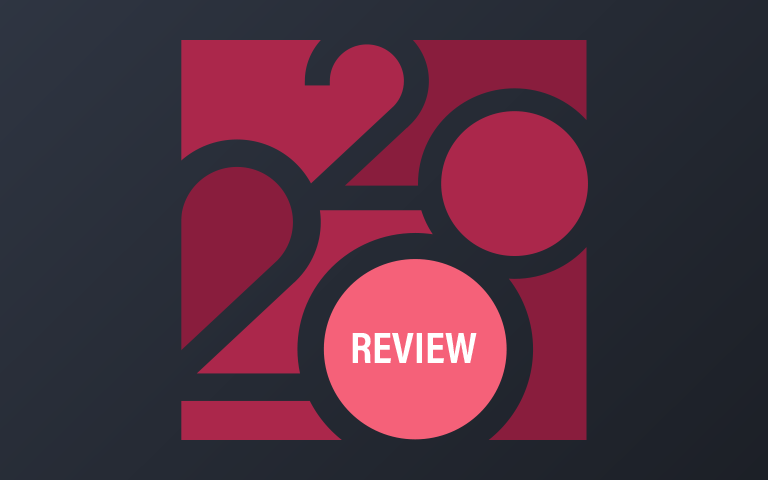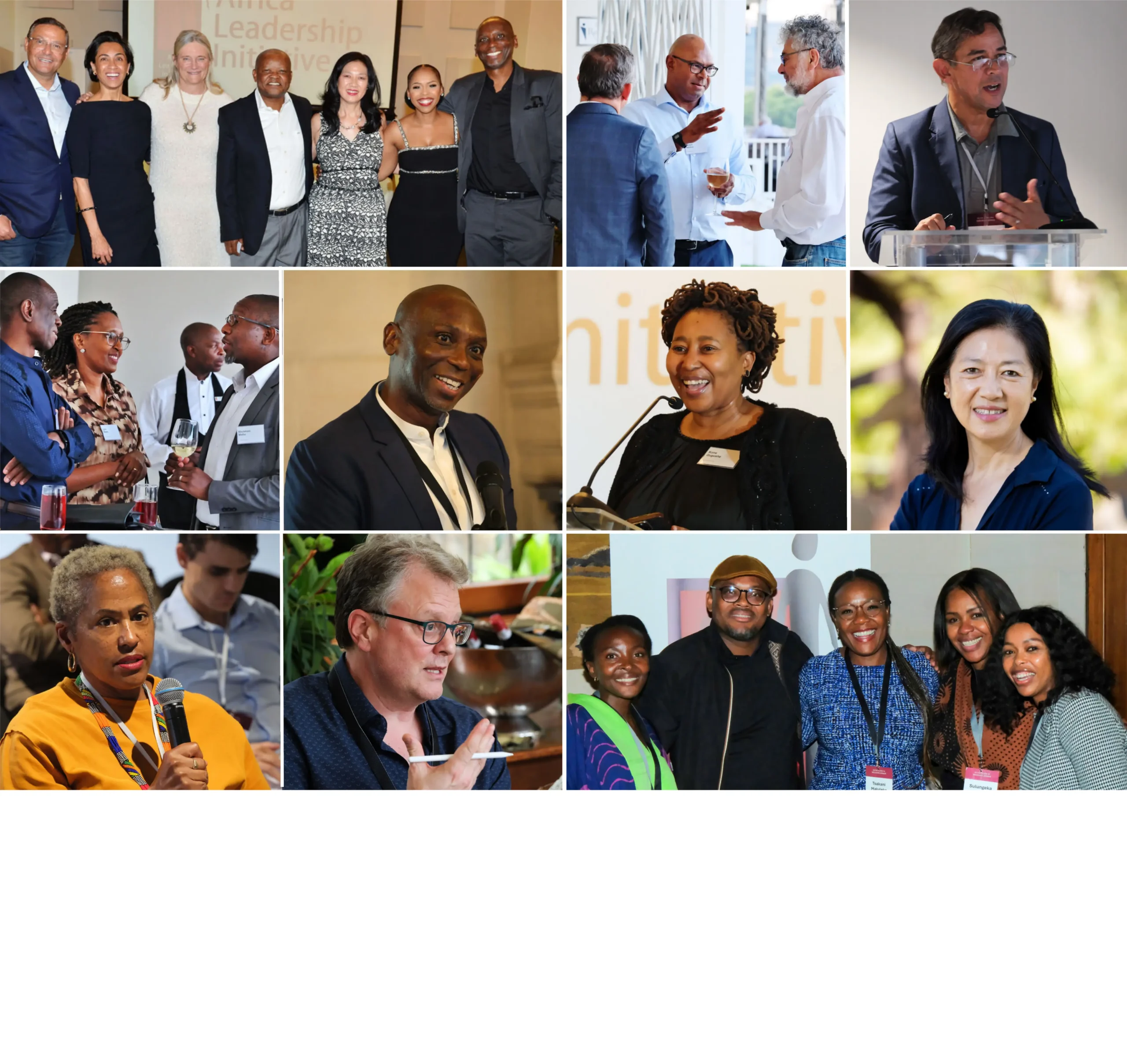
What a year it has been.
It started well. From February 26-29, we had the rare joy of spending four days together at the second Africa Impact Forum. More than 100 Fellows from nine countries came together in Accra, Ghana, around the theme “Building to Last: Leadership vs Systems”. In the group there were 25 from ALI-SA; as always when we engage with our ALI colleagues from across the continent, we came home inspired and energised.
In the first week of March our twelfth Class met for their first Seminar – The Challenge of Leadership. Despite the looming pandemic which indisputably impacted on the gathering, the Seminar was successful. We dispersed less than two weeks before lockdown and all plans for the year were abandoned.
Within two more weeks we knew that 2020 would be a year like no other. In a COVID-19 dedicated mailer ALI acknowledged just how much we didn’t know about the virus driving the pandemic; and predicted the inevitable fear-based responses from both government and individuals.
As we send out this mailer, South Africa is following the rest of the world into the second wave of the pandemic, and science continues to do battle with the legacy of opportunism and misinformation that has dogged Covid-19. We are approaching a million confirmed cases and forty thousand fatalities.
In the economic fallout that followed, and as anger replaced fear, 2020 turned into the single most broadly challenging year in living memory.
In the “doing” spirit of the ALI, a broad swathe of our Fellows moved swiftly from the space of dawning shock, into action. ALI-SA Fellows were found in many of the “at scale” interventions by government, business and civil society as well as in many individually driven interventions and think tanks. Some specific examples of these include:
- HUMANITARIAN AID: Adi Enthoven stepped up to co-chair the government’s Solidarity Fund. In this he was accompanied by a number of ALI Fellows. The Fund was designed as a rapid response vehicle to mobilise South African resources to augment Government’s attempts to address fallout from the pandemic. More than R3bn in donations were received; how the money is being spent is detailed on the fund’s website.
- FOOD RELIEF: Six ALI Fellows, including Roger Dickenson (Class II) and William Frater (Class X), contributed to the development of Mthunzi, an integrated software platform to connect donors of humanitarian relief to defined recipients via mobile-delivered vouchers useable at an extensive network of micro traders and major supermarkets. The potential of this approach to support humanitarian crises globally is becoming apparent.
- PSYCHO-SOCIAL CONCERNS: Nomfundo Mogapi (Class XII) led the establishment of the Mental Wellness Initiative, with initial funding from Bongi Mlangeni (Class X) of the Social Justice Initiative. MWI brings together many agencies to facilitate the sharing of resources to better understand what is needed for regional and national education departments to meet the psycho-social needs so frighteningly obvious in the education sector.
Let us not forget that 2020 channeled other global tragedies through our newsfeeds. These included the disastrous explosion in Beirut in August, which rendered hundreds of thousands homeless, killed more than 200 and injured more than 6 000; the bushfires that for months devastated parts of Australia causing untold losses; the conviction and subsequent death in prison of sexual predator Harvey Weinstein, which focused a global outpouring of sharing from victims of sexual abuse; the appalling killing of George Floyd under the knee of a policeman, which brought the world together around Black Lives Matter activism; and of course the bruising American election which achieved what earlier impeachment efforts had failed to do: remove President Donald Trump from office – but not before polarising voters of the United States.
At home, as layer upon layer of official ineptitude and corruption was exposed by, among others, the Zondo Commission and the Hawks, South Africans – battered by the existential crisis and economic meltdown of the pandemic – became increasingly cynical, angry and hopeless.
But hopeless is not an option, if we are to build the Good Society. In a series of sober but determined Dialogues, the silver linings and catalysts to solutions came through, over and over again.
For instance, one of the only in-person Dialogues of 2020 focused on the steady destruction of the economy by the parastatal Eskom. This Dialogue was held in collaboration with the Centre for Constitutional Values, with panelists Matthew Parks of Cosatu and Nazmeera Moola of Investec Asset Management. Facilitator Simon Freeman of Standard Bank set the tone with reference to President Cyril Ramaphosa’s call for a social compact: government, Ramaphosa said cannot, and does not expect to, solve South Africa’s social challenges without the engagement of business, labour, special interest groups and broader civil society. The potential for that collaboration is very present.
Throughout the year, digital Dialogues conducted via Zoom brought Fellows from across the country, and increasingly the continent, together in a way that tested and proved the value to ALI collaborators of digital connections. A highly successful digital Dialogue followed the release of the municipal audit results, under the theme “not much to go around, yet not the right hands at the till”. A fascinating conversation flowed about the root causes of municipal incompetence and corruption; if and how it might be possible to delink party-politics from local government; and how to shift municipal culture from scarcity and risk aversion into understanding the asset base and the opportunity for municipalities to leverage their asset base to buy better and more sustainable services. Those attending came away with some very concrete ideas about how to prototype a new paradigm of procurement, challenging widespread corrupt practices.
We really look forward to building on all the positive initiatives in 2021.
It’s worth noting that through all of this, ALI-SA also achieved a first: historically, for funding and logistics reasons we have aimed for a consecutive class of Fellows, every two years. By the end of this year, we will have launched Class XIII, while Class XII is still running – the first time we have ever had two classes running at the same time.
Some of our Fellows have stepped up into big roles this year:
- Tsakani Ratsela formerly Deputy Auditor General, was appointed Auditor General of South Africa
- Maurice Radebe (Class I: Inaugural Class) was appointed Head of Wits Business School
- Babalwa Ngonyama (Class VIII: Mahube) was elected chair of UCT’s Council, the first time in 100 years a woman has chaired the Council.
- Raisibi Morathi (Class IV: Kalipha) was appointed as Vodacom CEO
- Konehali Gugushe (Class X: XSeed) was appointed CEO of the Nelson Mandela Children’s Fund and Trust
- Lesego Sennelo (Class X: XSeed) joined Nampak’s Social, Ethics and Transformation Committee
- YALI Fellow Phathutshedzo Madima was appointed non-executive director and advisor of the Young African Entrepreneurs Institute
And, of course, Andy Kawa (Class VIII:Mahube) launched her book Kwanele, Enough!
We congratulate all of these, and wish them well as they leverage these positions to nudge our country in the right direction.
Important internal moves included Adi Enthoven stepping down after 12 years on ALISA’s Board, the last five as Chair to be replaced by Enzo Scarcella.
Adi and his family have been the backbone of the organisation and its largest funders, and Adi’s commitment to continue to bring his talent and energy to ALI is deeply appreciated. It is hard to overstate ALI-SA’s gratitude to Adi and the Enthoven family.









